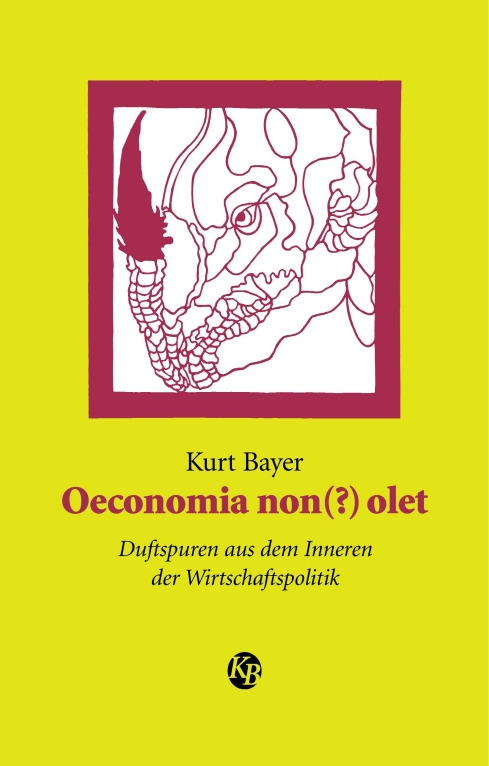Enrico Letta’s report on „Much more than a market – Speed, Security, Solidarity Empowering the Single Market to deliver a sustainable future and prosperity for all EU Citizens“ (April 2024) was delivered to EU prime ministers at their recent meeting. It is a thorough analysis of the changes since the Single Market’s inception in the early 1990s and of future requirements.
If, as an Austrian economist has recently called it, it is „the crown jewel of the EU“ (reader forget about the monarchistic slant!), then its rejuvenation and enhancement, as proposed by Lettas, is quite mpressive.
More Liquid Financial Markets?
If, however, one sees the Single Market’s philosophy as „globalization on steroids“, as the epitomy of neoliberal supply-side economics, at least partially responsible for the crises we are facing, climate and environment, pandemics spread, massive income and wealth inequality and the concomitant loss of social cohesion and confidence in politics, then one could question – as I do – why „more and better of the same“, as Letta proposes, is not rather a missed opportunity to make the Single Market the core piece of transition towards sustainability.
Letta proposes the quick implementation of the long-discussed „Capital Market Union“, in order to prevent capital from leaving the EU to attract foreign capital. He fails to mention the ravages unbridled financial market activity has wreaked on the world economy, not least in 2008 ff, when the crisis nearly brought down the world economy. He seems to suggest that the EU should emulate the US „deep and liquid financial market“ as the solution to enhance growth, to finance climate change and the digital transformation. No word about speculation, tax avoidance, high volatility which threatens the real economy. Sensibly, he suggests to create a unified institution for financial market supervision, instead of the sectoral fragmentation (banks, insurance, stock exchanges, euqity and bonds). But I would rather rely on completing the EU „Banking Union“, because bank finance, if properly supervised and risk-assessed, still rests on a personal link between the bank and the debtor, instead of the anonymous idea underlying financial markets (a multitude of „investors“ will make correct decisions). I also think that it is not – and should not be – the liquidity of a regional financial market that attracts capital, but the viability and strength of the to-be-financed real investments. I doubt whether a proposed „ EU automated personal pension product“ would reduce the challenges to finance pensionns in the future in the face of ageing societies. I prefer making pay-as-you-go systems viable instead of turning them over to the whims and irrationalities of financial markets. To turn more of Europe’s citizens savings, held in current accounts (around 10 trillion €??) into real investment, will remain an important challenge. It also makes sense to jointly finance mor of the Eus public goods, especially with respect to a Green Transition Fund. But: To reduce the domination of financial markets of the economy would be an important development of a future Single Market.
Europeanization of Networks
Also sensibly and within the mandate towards sustainability is Letta’s call for Europeanization of electricity, mobility and communication networks. Here fragmentation into 27 networks unnecessarily costs money and reduces service. Whether Letta’s proposed „Fifth Freedom“, comprising education, research and development and innovation – in addition to the existing four: goods, services, capital, labor – will bring Europe forward is to be seen. While recently, „security“ concerns, whether real or imagined, have given rise to a retrenchment of globalization, stronger European efforts in green and digital technologies could enhance the transition. The call for a relaxation of EU’s strict state aid rules, in order to create „European Champions“ to be able to counter the competition of US and Chinese giants, can be sensible, as well as the proposed creation of joint European financing of the Green Transition Fund.
Where is the Demand Side of the Single Market?
What Letta completely ignores is the idea the the Single Market should not only be a production enhancer, but also target the wellbeing of households. To direct more of EU economic policy towards the 450 million Europeans, instead of pursuing „international competitiveness“ by lowering costs of production – in this way also putting a lot of pressure on European wages, would make the Single Market more acceptable to citizens, by showing them real benefits accruing to Europeans. As the third largest economic space in the world, containing 450 million persons, the enhancement of sustainable wellbeing of the Europeans should be the Single Market’s primary aim, not whether we can compete with the outside world. Europe is strong enough, and wealthy enough to rely on its own ideas, its own cultures, its own values. Of course, where possible and positive, it should stay open to the outside world, exports its ideas and import useful ideas, goods and services.
Sustainability Needs More than Renewables, it Needs a New Economic Model
The order of the day is quick progress towards „sustainability“. It is not enough the „green“ the energy sector, as long as we rely on GDP growth as the main indicator for wellbeing, we will need more resources, impact more the environment and exhaust the creativity of our citizens. We need to stay on this green path, but turn the economy into not surpassing our planetary limits.
The recent statements by „world leaders“, including the heads of the major financial institutions, their lament about „global growth“ having fallen, is misguided. Why not use this weakness in GDP growth to push more forcibly for a quicker transition. The tools are available, political will is lacking. This is the real tragedy of our times. Letta’s report unfortunately fits this pattern.






Die Initiative von Letta ist gut und sollte zu einer breiten Diskussion führen; insofern ist Bayers Beitrag zu begrüßen. Seiner Ablehnung undifferenzierter finanzialisation kann ich weitgehend zustimmen, doch ist die Diskussion auf beiden Seiten zu undifferenziert und ideologisch belastet; auf wenigen Seiten lässt sich dieses komplexe Thema nicht abhandeln.
Bezüglich Effizienz stehe ich eher auf Lettas Seite. Es gibt mehrere Gründe, warum Effizienz und Wettbewerbsfähigkeit derzeit zu den wichtigsten Problemen Europas gehören. Erstens hat Europa überdurchschnittlich hohe Kosten:
Zweitens muss Europa seine Lieferketten aus Resilienzgründen umorganisieren, was unvermeidlicherweise eine Umschichtung zu eher teureren Lieferanten bedingt.
Drittens entspricht die europäische auf Mitteltechnologie beruhende Produktionsstruktur nicht seinem hohen Produktionskostenniveau.
Viertens ist Europa durch seine Offenheit anfälliger für exogene Schocks und protektionistische Maßnahmen seiner Handelspartner
Fünftens muss Europa mit der Herausforderung Chinas und seiner geopolitisch konzipierten und eingesetzten Handelspolitik zurecht kommen.
Auch als grundsätzlich „keynesianisch“ geprägter Volkswirt kann ich daher derzeit supply- und effizienzorientierte Maßnahmen nicht ablehnen
Danke für den Kommentar: dass meine Kritik an der Finanzialisierung “zu undifferenziert” ist, akzueptiere ich nicht: ich habe in vielen Kommentaren länger darüber geschrieben. Hier war aus Platzgründen nur eine kleine Notiz passend.
Mit geht es nicht darum, Effizienz grundsätzlich in Frage zu stellen, aber: Letta geht – wie ich zu schreiben versuche – vom Fortbestand dert >Ökonomie und ihrer Triebkräfte wie bisher aus, während ich sage, dass diese Art der Ökonomie uns die bestehenden Krisen, vom Klima über Finanzen und Ungleichheit bis zur politischen Krise beschert hat und deswegen reformiert gehört. Dazu sollte der Binnenmarkt einen essenziellen Beitrag liefern. Natürlich braucht es dazu auch angebotsoreinterte Maßnahmen – wie eine europäische Industriepolitik, und anderes